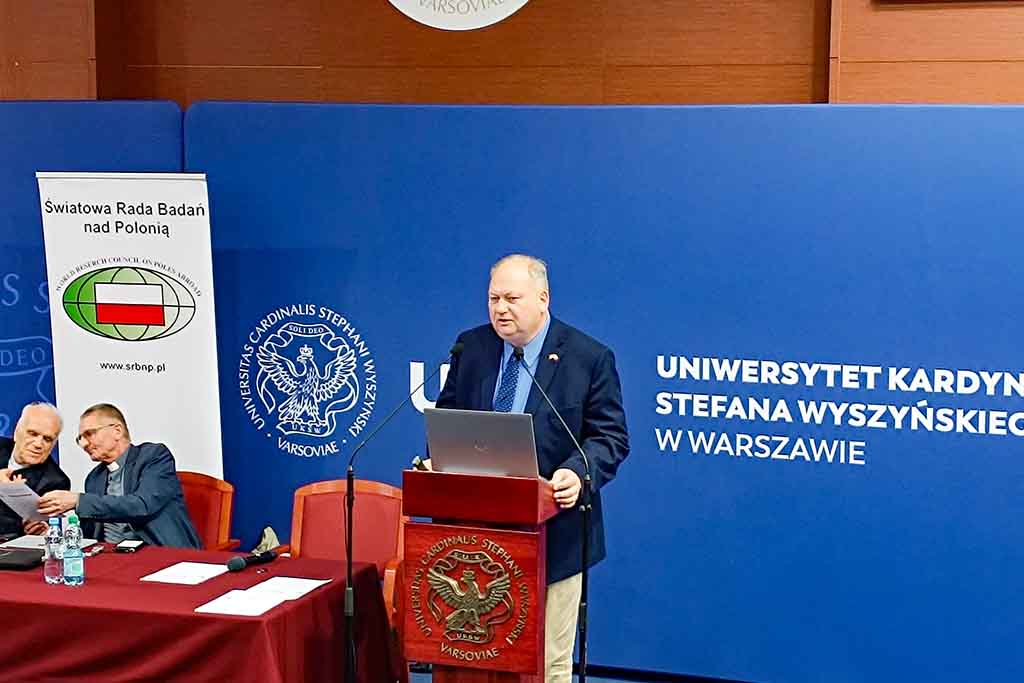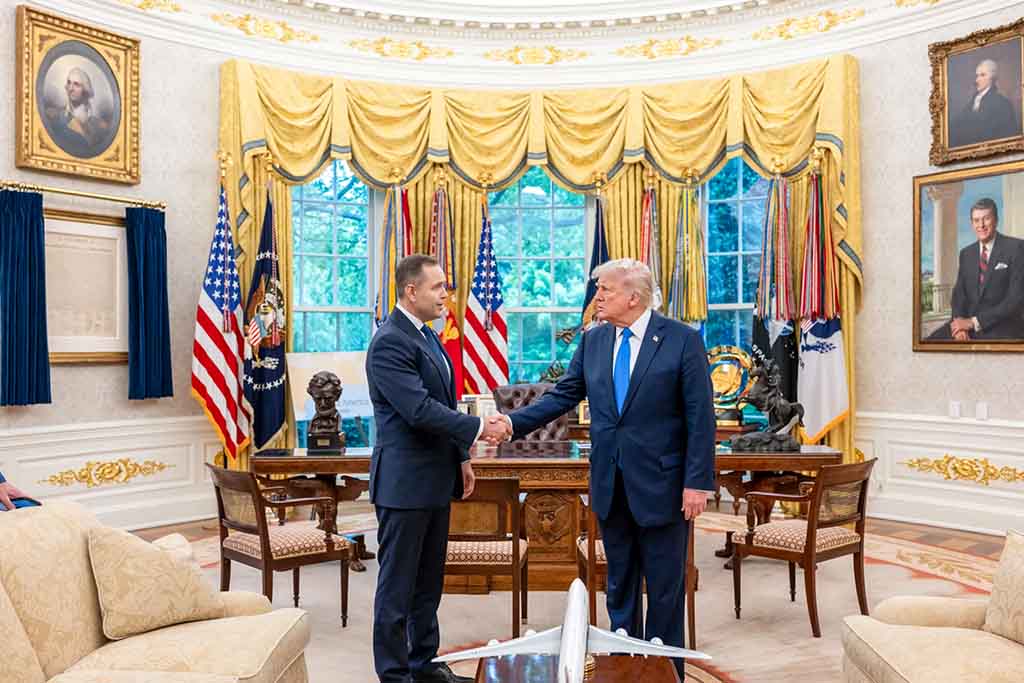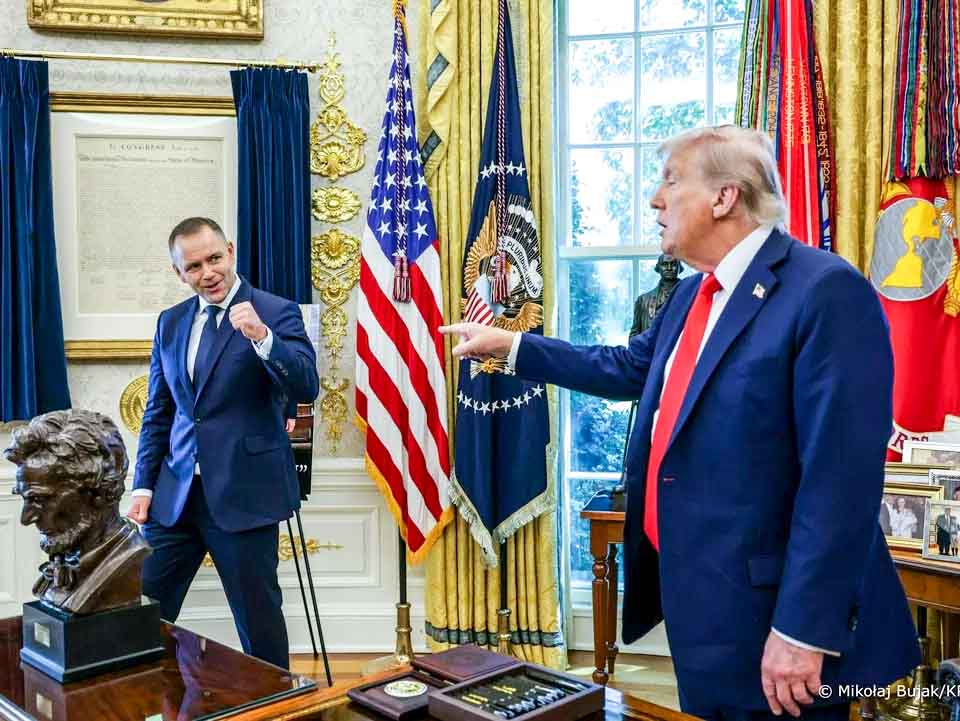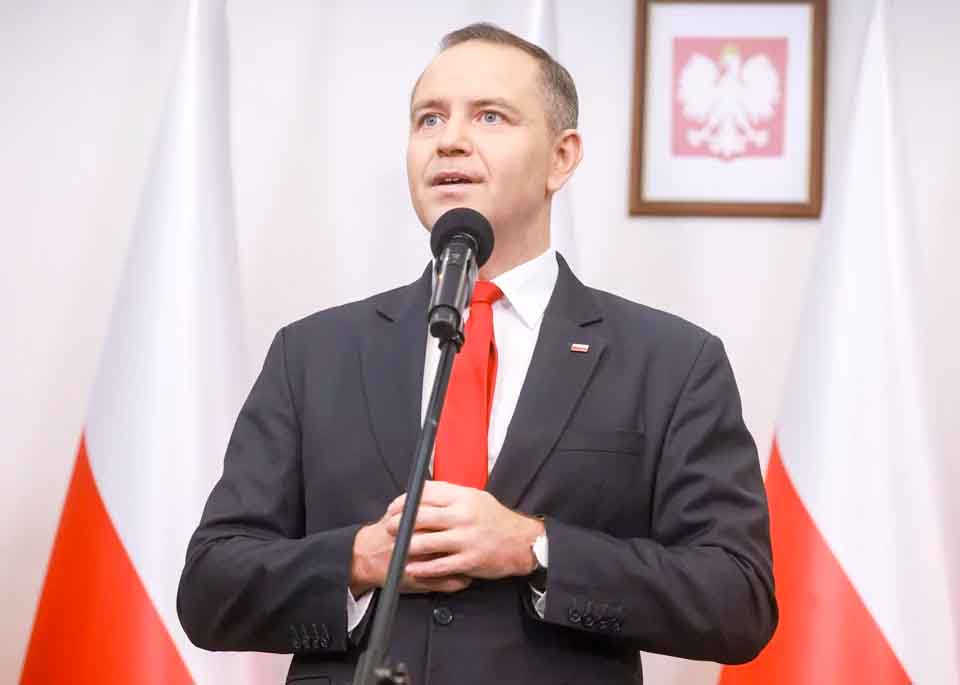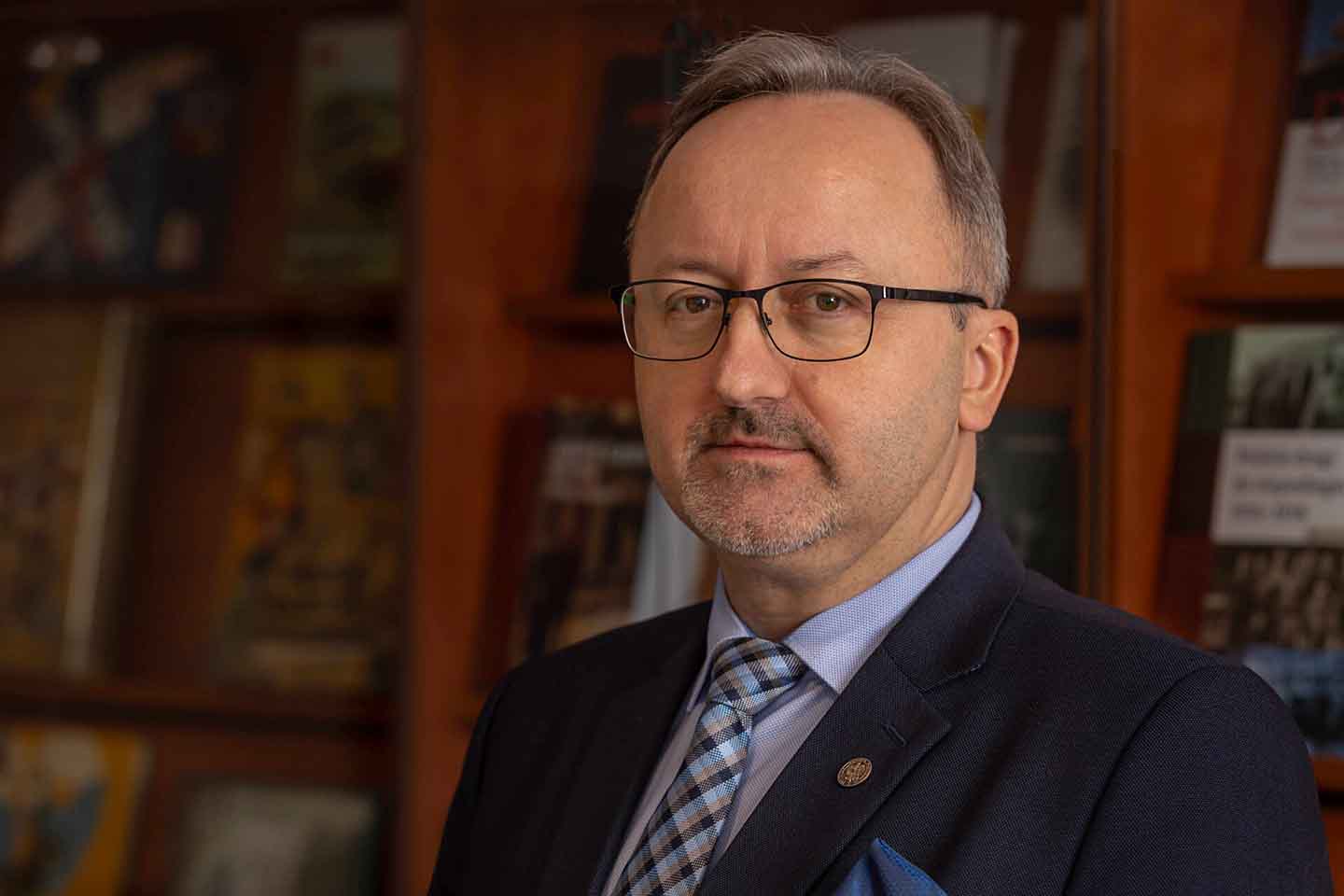The defense of Poland today is our most sacred and most important duty. It depends on us whether this defense will be just a patriotic phrase or a real defense, one for which the American Polonia will not have to be ashamed in the future.
Karol Rozmarek
In early 2012, I wrote an article in Gwiazda Polarna entitled "Through the Eyes of an Incorrigible Optimist, or... How to Heal the Polish American Congress?" At the time, I was the president of the Polish American Congress in Wisconsin and, with a great deal of naivety, I was trying to change the Congress for the better. I even had quite positive results in Wisconsin, but in the summer of 2012, my wife Susan received a job offer at Kansas State University and we had to move to Kansas.
Because I gave my phone number under the article, I ended up answering dozens of phone calls for several months, mostly with information about financial scams from various Polish centers. Some of the calls also concerned other ideas that perfectly complemented mine from the article.
As a consequence of this article, instead of inviting me to collaborate, there was institutional exclusion and silence with respect to me in the Chicago area, which continues to this day. Why am I returning to this topic? Well, elections for the president of the Polish American Congress (Kongres Polonii Amerykańskiej, KPA) are to be held in the fall and, as reported by the "squirrels", the current president cannot run for this position again. This is important information not only for the elites in Warsaw, but above all, for the entire Polish American community, which has been waiting for a charismatic, new leader for years.
Why do we need a Polish American Congress?
According to many analysts, intelligence agencies of various countries, Putin will attack Poland within a few years. On April 8, on NBC, Gordon Lubold, Dan De Luce and Courtney Kube wrote a text in which they reveal the Pentagon's plans to withdraw 10,000 soldiers from Poland and Romania! According to Elbridge Colby, confirmed a few days ago by the US Senate as the head of Pentagon policy, there are currently 80,000 American soldiers stationed in Europe, and he called for a greater focus on China even at the expense of Eastern Europe, and the withdrawal from Jasionka only confirms this fact and thus the risk of recognizing this logistics hub for the war with Russia in Ukraine as a target for a missile attack by Russia has increased.
A decision to suspend the withdrawal of American troops from Poland may be achieved by strong lobbying and in the United States there is sufficient intellectual and financial potential that such lobbying could build upon.
There are around 20 million people of Polish origin living outside Poland. These are people who left the country or were born outside Poland, but declare attachment to their Polish origin and ties to Polishness. The Polish diaspora is the fifth largest group in OECD countries. Over a quarter of Polish emigrants (28.8%) are people with higher education. Among the 10 million Polish Americans, there are over 800 Polish scientists at the "tenure" level and thousands of others who have never been asked if they would like to support anything. This is a serious group of people with enormous intellectual potential that cannot be underestimated.
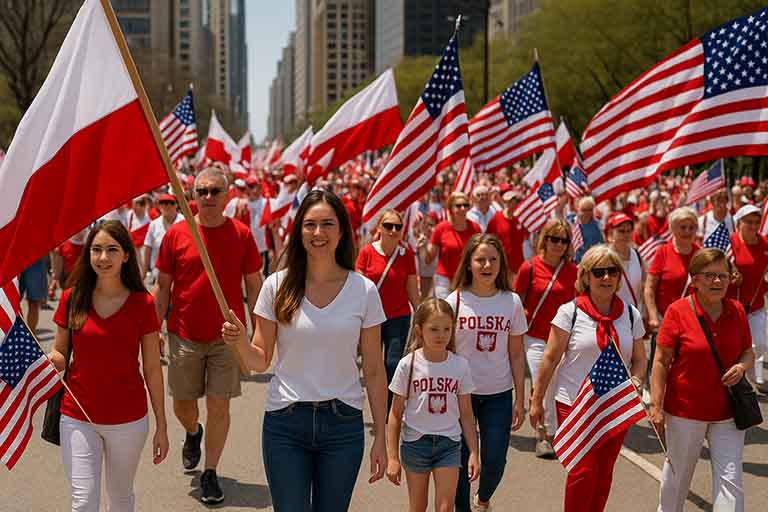
Illustration: A. Wozniewicz
The financial resources of the American Polonia, according to the Polish-Slavic Credit Union, amount to savings of an average of $17,500 per person. And these are only the savings of a select group of 100,000 Polonia from the New York, New Jersey and Chicago areas. It is enough to multiply these amounts to obtain the astronomical sum of $1,750,000,000.
All these human and financial assets could work for Poland assuming that they were not entangled in a Polish-Polish war. However, this requires a leader who unites and does not divide or silence those who are inconvenient.
For such an undertaking to succeed, political will and transparency must exist here in the United States.
In Poland, a politician must emerge who will have the courage to break the corset of the Round Table agreements and invite the émigré elites to participate in Polish political and social life.
I would like to remind you that the President in exile Ryszard Kaczorowski, the last President of Poland in exile, was deliberately eliminated from the round table talks, and during the first visit of the Prime Minister of Poland to London, Tadeusz Mazowiecki refused to meet with him. And from that moment on, the policy of dividing the Polish nation has been continued.
I would like to remind you that the President in exile Ryszard Kaczorowski, the last President of Poland in exile, was deliberately eliminated from the round table talks, and during the first visit of the Prime Minister of Poland to London, Tadeusz Mazowiecki refused to meet with him. And from that moment on, the policy of dividing the Polish nation has been continued.
The exposé on the foreign policy of the Republic of Poland is divided into 2 parts. The first one takes place in the Sejm in the presence of diplomats from other countries, the President and the media. The second, worse one, about the Polish diaspora is submitted to the Senate, but without the President, media and foreign officials. This is how the current government values almost 1/3 of the Polish nation abroad. It is time to fix this.
Polish diaspora policy
All documents from Warsaw on the cooperation of the Polish government with the Polish diaspora are rehashed from previous years with a hypocritical assurance that the government in Warsaw treats Polonia as a partnership. There are no significant tasks to be carried out in order to support the government's policy, apart from hołubce (a «hołubiec» is a dance move involving a jump during which the dancer strikes one heel against the other — ed.), pierogi and smiling faces in highlander costumes. This is how Warsaw imagines cooperation with Polonia.
Polish language learning is to take place, but only in catechism rooms, because the concept of entering American universities has not come to fruition for decades. After primary school, children scatter around the States and the end of learning Polish, because apart from church catechism rooms, there are no offers for these children to continue their education at American universities.
Fundamentals of the policy of the American Polish community
The most important foundation of the Polish diaspora policy should be a program based on the most important elements:
learning the Polish language,
learning the basics of Polish history and culture, with gradual specialization in business,
organizing study trips to Poland, and
organizing debates about the Polish diaspora and its development.
Other foundations of the Polish diaspora policy are acculturation, or the ability to function in both cultures, and bilingualism (the diaspora in other countries should use the ideas and solutions of the American Polonia). There is a need to mentally go beyond the catechism rooms.
In order to implement professional programs with invited guests, one must mentally break away from the past and enter the 21st century. It cannot be that the microphone is suddenly taken away from a professional, constitutional minister, an invited guest, by a priest who informs him that time is up (this really happened).
Selection of candidates for the position of president of the Polish American Congress
Candidates nominated by state departments, or individual candidates, should, first and foremost, present a specific program and make it public in the media. A transparent debate of candidates should take place in Chicago, prepared by recognizable Polonia journalists and broadcast by one of the Polonia centers. It may be worth involving media from Poland and local Chicago media in organizing the debate.
Candidate qualifications:
Nominated candidates should have a specific and measurable track record of working for the Polish diaspora. They cannot be people who have merely been attending meetings for the past 15 years. They cannot be people from nowhere who suddenly discovered a mission and want to make a career. They must be active members of the Polish American Congress.
Such candidates must represent a non-partisan approach to political reality in the US and Poland and have in mind the good and development of the Polish American Congress, which brings together American citizens of Polish descent and citizens of the Republic of Poland who have dual citizenship.
The essence of the personnel policy of the future president must be equal treatment of both groups. The candidate for the president of the KPA must measure up to the charisma of the first two leaders of the KPA: attorney Karol Rozmarek and attorney Alojzy Mazewski, who are unsurpassed models of KPA leaders — always welcome in the White House. At present, the American Polonia has such activists who are recognized in the White House.
Examples from the past:
For the last 100 years, the American Polish community has uncritically and unconditionally supported the Polish nation and state.
- It sent over 22,000 volunteers to the Blue Army, who then shed their blood for the Fatherland.
- It supported Poland through the Organization of the American Relief Effort in Poland (1919-1923), which transferred $250 million to Poland.
- The Polish community in the United States, after the betrayal at Yalta, representing the Polish raison d'état and Polish interests together with the London government in exile after 1945, accepted 150,000 Poles (Displaced Persons Program).
- After World War II, UNRRA, another aid organization, at the urging of the Polish diaspora, donated $453 million to Poland.
- Bringing about a US Congressional investigation into the Katyn crime and finding the Soviets guilty of that crime.
- Ensuring the participation of the United States in the recognition of the Polish borders on the Oder and Neisse by the German state.
- Ensuring United States participation in the financing of Radio Free Europe.
- A brilliant edition of an American postage stamp depicting a white Polish eagle wearing a crown with a Catholic cross for the millennium of the Polish state (1966).
- The commitment of the United States government to participate in the National Endowment for Democracy (NED) – aid for the underground Solidarity movement during martial law.
- Establishment of the Polish American Enterprise Fund (PAEF) – an aid program for Poland.
- Assistance in establishing law for political refugees from Poland during martial law.
- Lobbying campaign to support Poland's efforts to join NATO (over 9 million petition signatures collected).
- Material assistance of $200 million for medical equipment and assistance to victims of the floods in 1997 and 2001.
- Actions against US bill 447 and defense of the Katyn monument in New Jersey.
Behind all this were Poles and Americans of Polish origin living in the USA.
Every year, the Polish diaspora in the United States sends about $900 million to Poland (World Bank data, prepared by the Migration Policy Institute), not to mention other countries. These funds are comparable to those invested in Poland by foreign companies.
Conclusions:
The renaissance of the Polish diaspora in the USA is approaching with great strides in a situation when our families in Poland are exposed to attack from Russia, loss of sovereignty, which was mentioned 2 decades ago by the chairman of the Polish American Congress Edward Moskal in the aspect of Poland's accession to the European Union and the changing geopolitical situation and the planned withdrawal of American troops from Europe, including Central and Eastern Europe. That is why we have a 10 million diaspora in the United States and it must be activated to secure Poland's security and rights to further development.
So let's stop dealing with pierogi and hołubce and let's deal with what the 10 million educated Polish Americans should be dealing with.
There is no point in waiting for any help from the current administration in Warsaw, which scares us with deportations from the United States and punishes us with cuts in subsidies for voting for Donald Trump. We have to make this change ourselves, because no one in Washington is lobbying for Poland.
Rebuilding the structures of the Polish American Congress is the first step towards building strong pro-Polish lobbying in the United States.
Translation from Polish by Andrew Wozniewicz.







